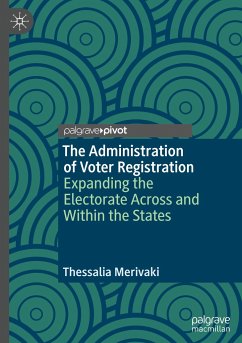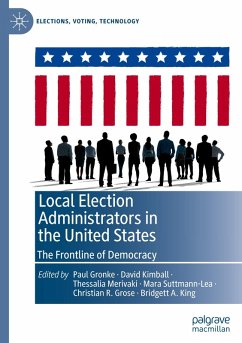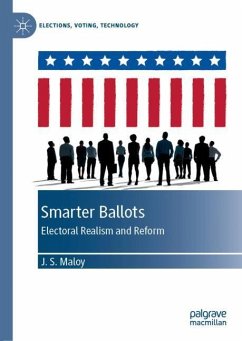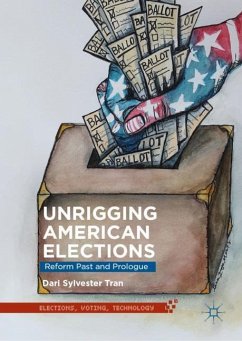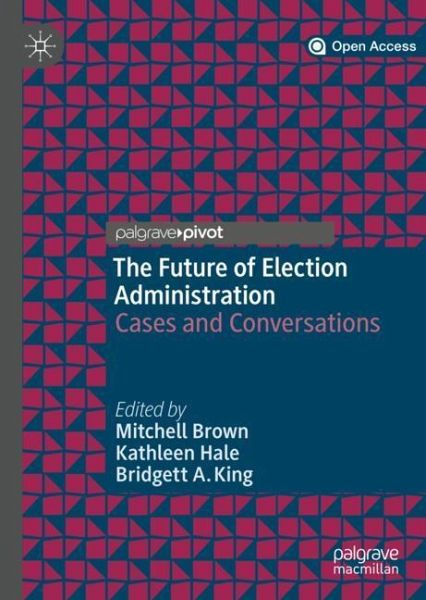
The Future of Election Administration
Cases and Conversations
Herausgegeben: Brown, Mitchell; Hale, Kathleen; King, Bridgett A.
Versandkostenfrei!
Versandfertig in 6-10 Tagen
22,99 €
inkl. MwSt.

PAYBACK Punkte
11 °P sammeln!
As the American election administration landscape changes as a result of major court cases, national and state legislation, changes in professionalism, and the evolution of equipment and security, so must the work of on-the-ground practitioners change. This Open Access title presents a series of case studies designed to highlight practical responses to these changes from the national, state, and local levels. This book is designed to be a companion piece to The Future of Election Administration, which surveys these critical dimensions of elections from the perspectives of the most forward-thin...
As the American election administration landscape changes as a result of major court cases, national and state legislation, changes in professionalism, and the evolution of equipment and security, so must the work of on-the-ground practitioners change. This Open Access title presents a series of case studies designed to highlight practical responses to these changes from the national, state, and local levels. This book is designed to be a companion piece to The Future of Election Administration, which surveys these critical dimensions of elections from the perspectives of the most forward-thinking practitioner, policy, advocacy, and research experts and leaders in these areas today. Drawing upon principles of professionalism and the practical work that is required to administer elections as part of the complex systems, this book lifts up the voices and experiences of practitioners from around the country to describe, analyze, and anticipate the key areas of election administration systems on which students, researchers, advocates, policy makers, and practitioners should focus. Together, these books add to the emerging body of literature that is part of the election sciences community with an emphasis on the practical aspects of administration.





